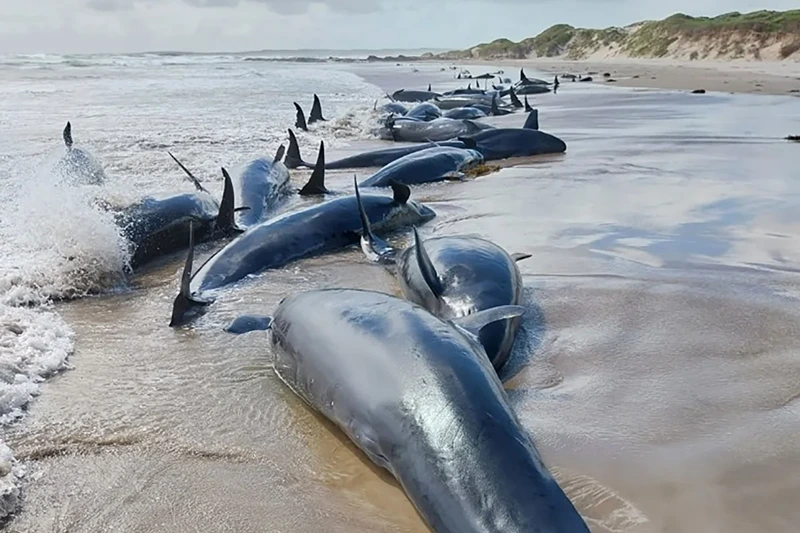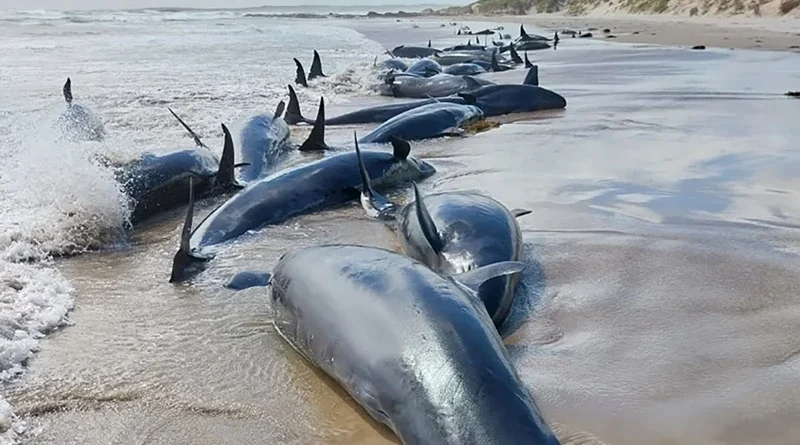More Than 150 False Killer Whales Stranded on Tasmanian Beach; 90 to Be Euthanized to Alleviate Suffering – One America News Network

OAN Staff Abril Elfi
5:40 PM – Wednesday, February 18, 2025
Over 150 False Killer Whales have been discovered stranded on a secluded beach in Tasmania, an island state of Australia.
Advertisement
On Tuesday, Tasmania’s Department of Natural Resources reported that 157 whales were found stranded near the Arthur River.
By Wednesday morning, it was confirmed that only 90 of these whales remained alive. Despite attempts by rescuers to return two of the whales to the ocean, adverse weather conditions forced the whales back to the shore.
“It’s quite rough, and the animals just can’t get past the break to get out. They just keep turning around and coming back towards the beach,” explained Shelley Graham, incident controller with Tasmania Parks & Wildlife Service.
Brendon Clark, a liaison officer from the department, mentioned that the difficult beach access, challenging ocean conditions, and logistical hurdles in transporting equipment to the isolated area were complicating response efforts.
“To try to refloat the animals directly back into that surf would be challenging, and of course, that would also present some significant safety risks for our staff and personnel,” Clark told reporters.
“We’ve got our experts on site now who are doing all they can to determine what methodology will be implemented to find a suitable and humane response to this very challenging incident,” Clark added.
The last significant stranding of False Killer Whales in Tasmania occurred in June 1974, when approximately 160 to 170 were found at Black River beach on the northern shore of the island. However, it remains unclear how many survived from that incident.
Officials later announced that they have made the difficult decision to euthanize the 90 surviving whales to relieve their suffering, as they had become “disoriented and distressed” after spending many hours on the beach.
Stay informed! Receive breaking news alerts directly to your inbox for free. Subscribe here. https://www.oann.com/alerts
Advertisements below


